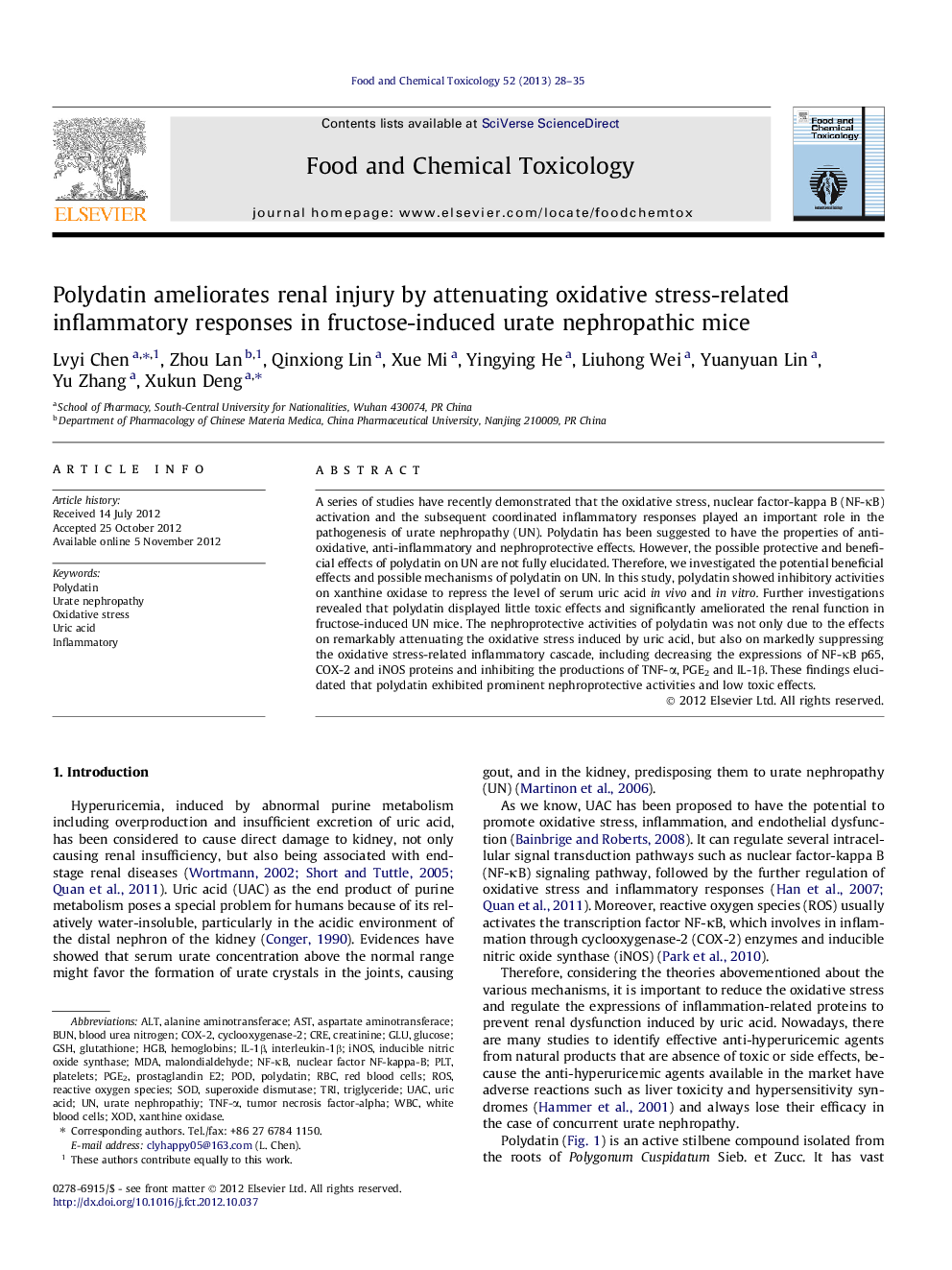| Article ID | Journal | Published Year | Pages | File Type |
|---|---|---|---|---|
| 2585243 | Food and Chemical Toxicology | 2013 | 8 Pages |
A series of studies have recently demonstrated that the oxidative stress, nuclear factor-kappa B (NF-κB) activation and the subsequent coordinated inflammatory responses played an important role in the pathogenesis of urate nephropathy (UN). Polydatin has been suggested to have the properties of anti-oxidative, anti-inflammatory and nephroprotective effects. However, the possible protective and beneficial effects of polydatin on UN are not fully elucidated. Therefore, we investigated the potential beneficial effects and possible mechanisms of polydatin on UN. In this study, polydatin showed inhibitory activities on xanthine oxidase to repress the level of serum uric acid in vivo and in vitro. Further investigations revealed that polydatin displayed little toxic effects and significantly ameliorated the renal function in fructose-induced UN mice. The nephroprotective activities of polydatin was not only due to the effects on remarkably attenuating the oxidative stress induced by uric acid, but also on markedly suppressing the oxidative stress-related inflammatory cascade, including decreasing the expressions of NF-κB p65, COX-2 and iNOS proteins and inhibiting the productions of TNF-α, PGE2 and IL-1β. These findings elucidated that polydatin exhibited prominent nephroprotective activities and low toxic effects.
Graphical abstractFigure optionsDownload full-size imageDownload as PowerPoint slideHighlights► Polydatin inhibits xanthine oxidase activity to repress the serum uric acid level. ► Polydatin shows low toxicology effects on fructose-induced urate nephropathic mice. ► Polydatin attenuates oxidative stress-related inflammatory responses in the kidney. ► Polydatin ameliorates the renal function of fructose-induced urate nephropathic mice.
